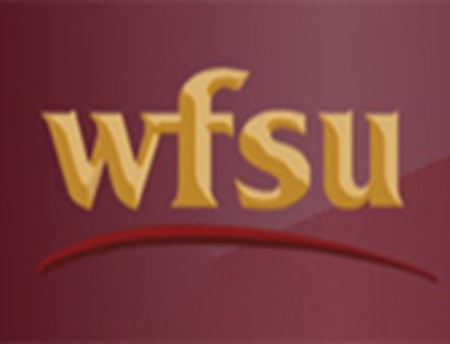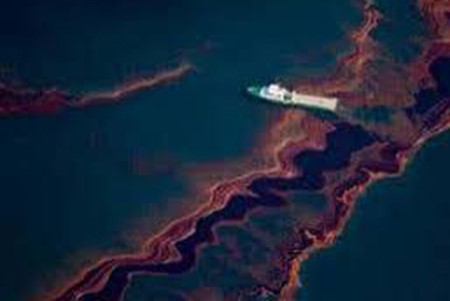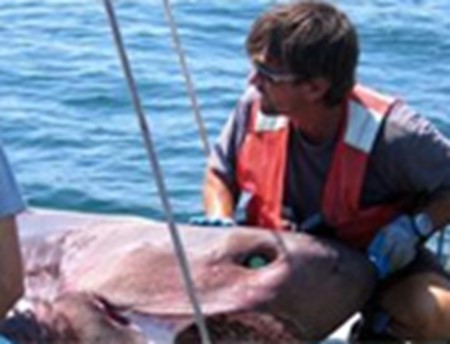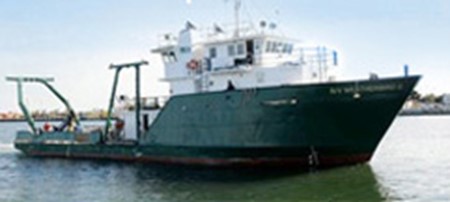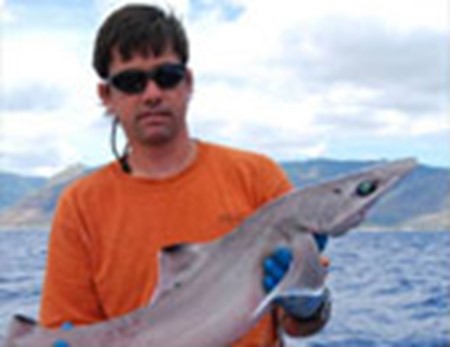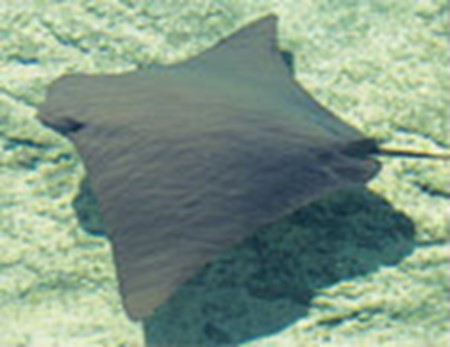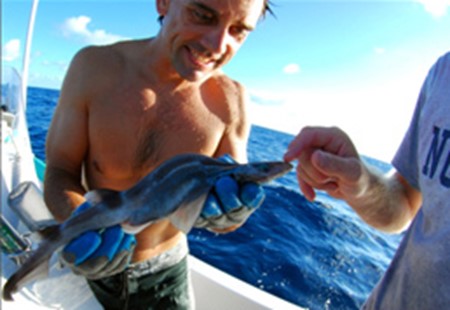WFSU radio's Tom Flanigan interviews Dr. Dean Grubbs (FSUCML) about his October Science Café lecture on sharks. Dr. Grubbs discusses the effects of the BP oil spill on deep sea sharks and the challenges he faced while conducting this research because of the lack of data on marine life at these depths.
FSUCML Scientists Talk BP Oil Spill on WFSU
Two years after the Deepwater Horizon blow out, scientists are still piecing together what happened to the millions of gallons of crude oil that gushed into the Gulf of Mexico and what the environmental consequences would be. Recently, FSUCML scientists Dr. Grubbs and Dr. Coleman and their colleagues in the Deep-C Consortium gathered in Tallahassee to discuss their long-term study of oil effects, where they were interviewed by WFSU news director Trimmel Gomes.

